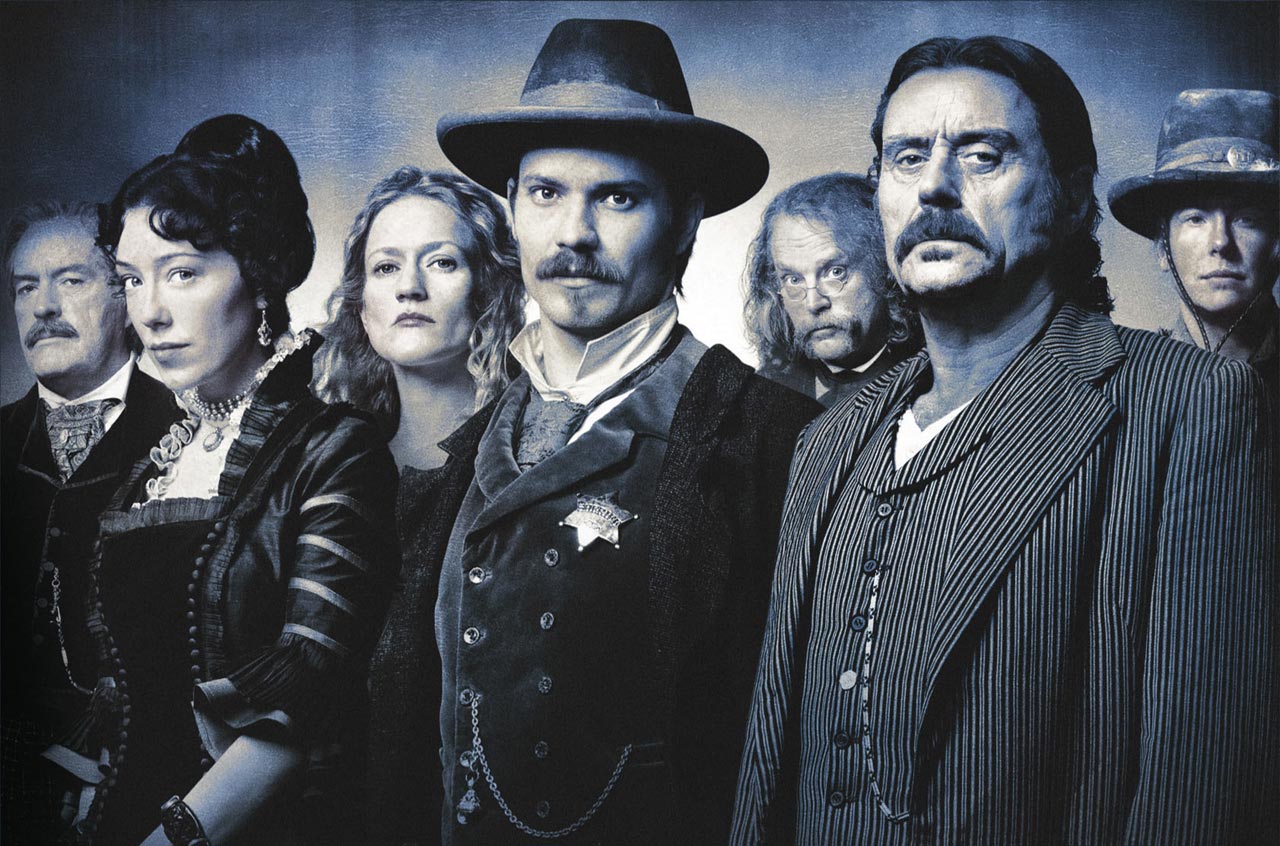He wants me to tell him something pretty.
- Al Swearengen

I read somewhere that if The Wire is there to tell us why institutions fail, Deadwood is there to tell us why they spring up in the first place.
For those unfamiliar with this almost ten year-old show, Deadwood is a Western of sorts, set in the Dakota territory in the 1870s. It follows the life of a nascent camp bereft of law and order, and shows how the chaos of lawlessness gradually morphs into what we proudly call "civilization."
If all this sounds too abstract then fear not, because Deadwood tells the above story by paying painstakingly close attention to the characters which make up the town (many of whom are historical persons). Indeed, so close is the attention paid to characterisation that it's often difficult to know what exactly is happening in any given episode. That may sound like a problem but it it's not, because Deadwood is defined not by what it is about but who it is about.
The writers of the show introduce us to lawmen, politicians, saloon owners, prostitutes, gamblers, drunks, actors, prospectors, capitalists, teachers, all of whom fit together as part of some strange machine called a town. And though it is rarely (if ever?) seen, the character which lurks in the background of this drama is gold, with all its promise and its potency. Gold makes all this possible, yet we are left asking ourselves if the price is worth paying.
Which brings me back to the quote at the top of this post. A sacrificial murder has just taken place to appease the wrath of the venture capitalist. One of Swearengen's employees wants to be reassured that the murder was done humanely. In one of the many Shakespearian soliloquies featured during the shows three-year run, Ian McShane's utterly captivating Al Swearengen says to himself, as he wipes the fresh blood from his office floor, "He wants me to tell him something pretty."
With this line Deadwood exposes our desire for a lie instead of the truth. We want to think our civilization is built on the back of hard work and creativity and honest dealings, and we would like for a show like Deadwood to convey as much. We want the writers to tell us something pretty about how all this came to be. But the blood on the floor from a sacrificial victim speaks a truth we would rather not hear. The history of which we are a part is violent, unmerciful, greedy, though it is by no means entirely without virtue, as Deadwood attests (particularly in the form of the town doctor).
Deadwood is slow going, and filled to the brim with record-breaking vulgarity. This is another way of saying that it will not be to everyone's taste. But if you appreciate intricate characterisation, thoughtful dialogue, and anti-capitalist sentiments then Deadwood may just be the perfect show for you.
No comments:
Post a Comment